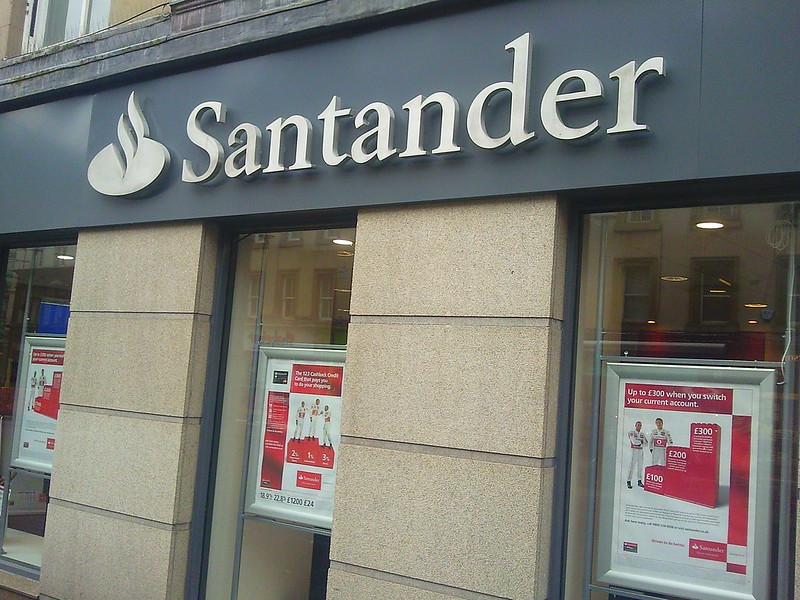Fintech
Santander Terminates Wirecard Successor Business in Germany
Santander is closing its German payment platform Pagonxt, affecting around 380 employees in Germany and 150 IT specialists in Dubai and Chennai. Acquired from Wirecard in 2021, Pagonxt struggled due to unclear direction and legacy management issues. Santander will now focus on its acquiring business in Spain, Portugal, and Latin America.

The Spanish major bank Santander is closing the payment business of its subsidiary Pagonxt in Germany. A Pagonxt spokesperson confirmed the closure of the platform to Handelsblatt.
Clear perspective by Santander is missing
Santander took over parts of the insolvent Wirecard Group at the beginning of 2021 and wanted to expand the payment business in Germany. However, the start was bumpy.
The approximately 500 Wirecard employees who were taken over initially missed a clear perspective and criticized the fact that well-known managers from the Wirecard years continued to run the business. In autumn 2022, Nicole Mantow took over the management of Pagonxt Merchant Solutions in Munich, but has since left the company.
“Given the evolution of the merchant payment market in Europe, we are focusing on our acquiring offering in Spain and Portugal as well as strategic markets in Latin America,” the spokesperson explained. “That is why we are shutting down our platform in Germany,” a Santander spokeperson said.
Acquirers process debit and credit card payments on behalf of merchants. Payment companies receive a small portion of the transaction volume from the merchants as a fee. Santander has bundled its various payment service providers worldwide in the Pagonxt subsidiary.
380 employees in Germany affected by Santander decision
Santander decision affects around 380 employees in Germany. It also affects around 150 IT specialists in Dubai and Chennai, India. “We have started talks with the works council in Germany to ensure an orderly, socially acceptable transition for the employees,” said the Pagonxt spokesman.
Wirecard collapsed in June 2020 after the then DAX-listed company was unable to locate alleged billions in assets in trust accounts. The money was said to have come from the third-party partner business that Wirecard operated, primarily in Asia, for customers in the porn and gambling industries.
Wirecard Insolvency administrator demands billions in damages from EY
Jaffe believes that EY’s auditors are partly to blame for the fact that Wirecard’s fraud, which had been going on for years, was not uncovered earlier. Shortly before Christmas, it became known that the insolvency administrator had sued the auditors for damages as a result.
A spokesman for the Stuttgart Regional Court has now stated that the value of the damages claim filed by Jaffe shortly before Christmas is 1.5 billion euros. The insolvency administrator’s job is to get as much money as possible for the creditors. After the bankruptcy, they filed claims worth billions against the former stock market star.
According to the status report, Jaffe has also sued the US investment bank Citi for 140 million euros before the Munich I Regional Court. It had carried out a share buyback for Wirecard a few months before the insolvency.
But Wirecard could no longer have afforded the buyback at that point, argues Jaffe in the lawsuit. This “represents a violation of corporate law provisions, which in turn leads to the invalidity of the contractual agreements concluded,” says his report. The bank rejected the claims, which is why he has now filed a lawsuit to prevent the statute of limitations from expiring.
__
(Featured image by Karen Bryan CC BY-ND 2.0 via Flickr)
DISCLAIMER: This article was written by a third party contributor and does not reflect the opinion of Born2Invest, its management, staff or its associates. Please review our disclaimer for more information.
This article may include forward-looking statements. These forward-looking statements generally are identified by the words “believe,” “project,” “estimate,” “become,” “plan,” “will,” and similar expressions. These forward-looking statements involve known and unknown risks as well as uncertainties, including those discussed in the following cautionary statements and elsewhere in this article and on this site. Although the Company may believe that its expectations are based on reasonable assumptions, the actual results that the Company may achieve may differ materially from any forward-looking statements, which reflect the opinions of the management of the Company only as of the date hereof. Additionally, please make sure to read these important disclosures.
First published in FINANZBUSINESS. A third-party contributor translated and adapted the article from the original. In case of discrepancy, the original will prevail.
Although we made reasonable efforts to provide accurate translations, some parts may be incorrect. Born2Invest assumes no responsibility for errors, omissions or ambiguities in the translations provided on this website. Any person or entity relying on translated content does so at their own risk. Born2Invest is not responsible for losses caused by such reliance on the accuracy or reliability of translated information. If you wish to report an error or inaccuracy in the translation, we encourage you to contact us

-

 Crypto5 days ago
Crypto5 days agoBitcoin Rebounds Above $70K as Crypto Markets Show Fragile Signs of Recovery
-

 Crypto2 weeks ago
Crypto2 weeks agoCrypto Markets at a Crossroads as Bitcoin Slides to $75,000
-

 Biotech2 days ago
Biotech2 days agoEurope Launches Personalized Cancer Medicine Initiative
-

 Impact Investing1 week ago
Impact Investing1 week agoEnfinity Launches First Solar Plant in Italy with Microsoft

























